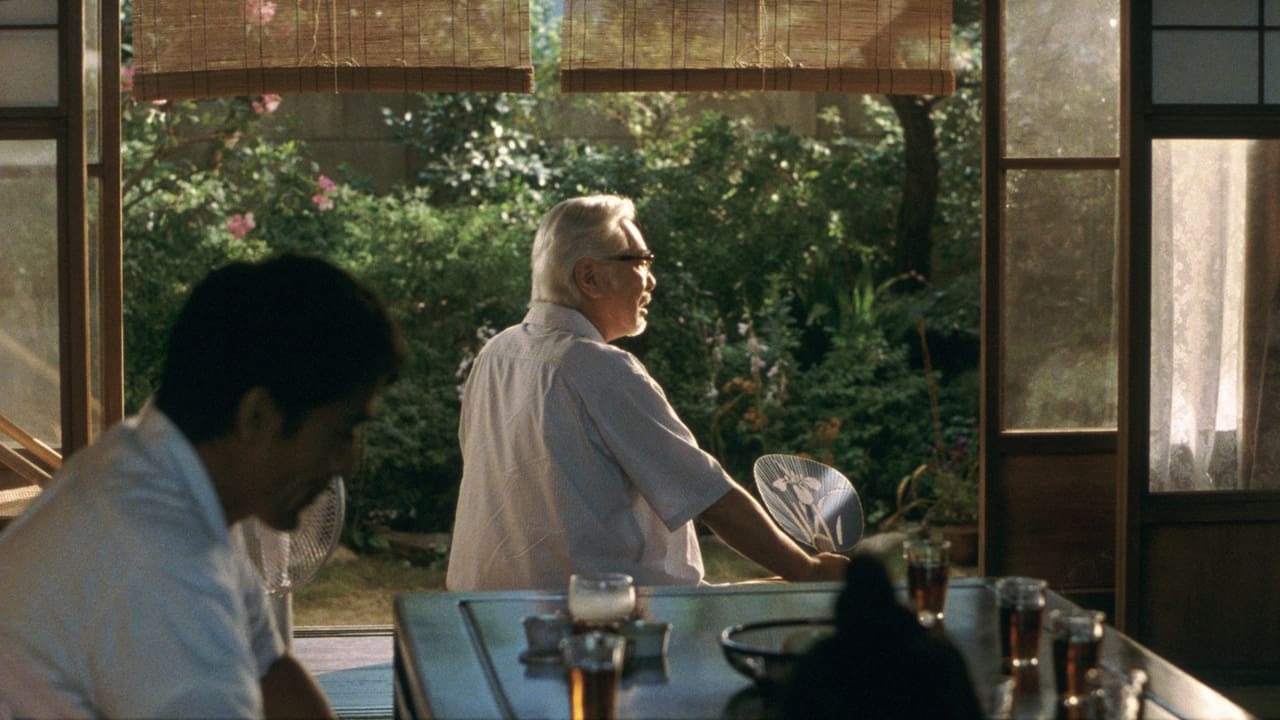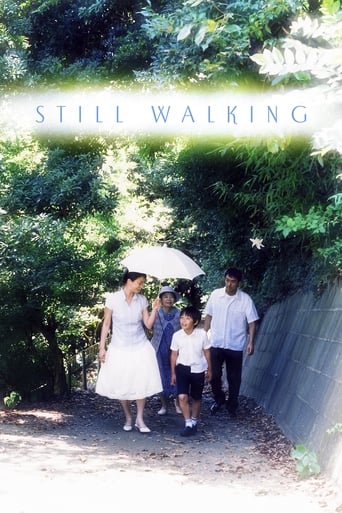Dynamixor
The performances transcend the film's tropes, grounding it in characters that feel more complete than this subgenre often produces.
KnotStronger
This is a must-see and one of the best documentaries - and films - of this year.
Married Baby
Just intense enough to provide a much-needed diversion, just lightweight enough to make you forget about it soon after it’s over. It’s not exactly “good,” per se, but it does what it sets out to do in terms of putting us on edge, which makes it … successful?
endlesprince-06213
I thought the actors, none of whom I had ever seen before, were all quite good. I particularly liked the father who played as Kyohei--he was unpredictable and sometimes he looks mad sometimes he looks smiling, but you could see that he was taking everything in the scene. I think he's slightly aggressive.
bonsai-superstar
"Few other nations can capture the beauty of family drama with such subtlety and grace as the Japanese can." (as Japan can, you mean? "the Japanese" is not a "nation") "While watching the movie, I found it hard not to be immersed by the beauty of Japanese suburbia." (immersed _in_, surely?).Poor grammar aside, statements such as these are notable for their exoticism of Japan, likely based on ignorance of what life in Japan is actually like. As a non-Japanese living in Japan, I am unfortunately all too familiar with approaches such as these. Japan is mystical. Japan is futuristic. Japan is strange. Japan is etc. If only all the reviewers here (notably non- Japanese, notably positive reviewers) would actually come and live and/or work in Japan, they could experience this supposed "beauty of family drama" and "beauty of Japanese suburbia" themselves. Then, they might see this movie for what it is: a Japanese version of a Hollywood movie: appealing to the masses, simply confirming family values (Dad might be grumpy, but he loves you after all!, nobody's perfect, etc.) and most definitely nothing special or new. A bad movie? No. But do you really believe, as another reviewer here wrote, "Only Japanese movies seems to be able to go so deeply into subtleties of family affairs as this one."? (again with the poor grammar - I think they're trying to say, "Only Japanese movies such as this one seem to be able to go so deeply into the subtleties of family affairs.") This is a mediocre movie with ratings/reviews inflated by reviewers who exoticise Japan. If this movie was set in the United States with Hollywood actors, it would be recognized for what it is: a cheesy, average film. Discrimination, whether positive or negative, is still discrimination. Yet another reviewer here wrote of the Japanese, "They're not like American people. They're not ordinary people." Uh, they are ordinary humans like the rest of us and this movie proves it.
hauman
This terrific character study of a family, written and directed by Hirokazu Koreeda, is grounded in universal terms that could place it in any civilized city in the world. The family assembly to honor the dead is a trans-cultural one and the filmmakers, though depicting the day-to- day life of a Japanese family, uses western music to give the film a world feel. Food is an ongoing character throughout "Still Walking" and has a cathartic affect on the family members and their conflicts whenever they gather to eat.The acting is believable and realistic. Grandpa would be grumpy because he feels that he is still useful even if his eyesight has gone bad. Ryo has lived in the shadow of his favored brother all of his life and resents his father for it. My favorite character, though, is Ryo' stepson Atsushi. The young boy comes across as a wiseman observing the foibles of his new family as he lives among them. All of the family characters are given full dimension by the actors.
CountZero313
Koreeda's Aruite Mo Aruite Mo is a consideration of family that is part homage, part vivisection. The comparisons to Ozu that have been made are fitting, the film a return to the Golden Age of Japanese film-making when a distinctly Japanese setting was employed to convey universal themes. The domestic setting, limited time-frame, and even knee-high camera placement all deliberately connote Ozu, but not so much to bow before him, as to re-invent him, to update or even evolve the form. Koreeda seems to have set out less to pay his respects to Ozu, as to surpass him.Ryota brings his new wife and stepson home to to meet his family on the anniversary of his older brother Junpei's passing. The cycle of pettiness, accusation, pouting and recrimination soon kicks in, familiar theatre of family that will have people recalling Thanksgiving get-togethers, Hogmanany parties, Christmas fall-outs... The joy is in the details of Koreeda's observations, and the forceful animation of them by the cast. From the opening conversation between mother and daughter, playful banter on lessons never learned, wisdom refused, the tone of interdependence with tense undercurrents is set.YOU as Chinami is more straightforward than her mis-maternal role in Nobody Knows, angling to move in with her parents by talking to her mother as a type, rather than as a person. Kirin Kiki is best known these days here in Japan for her comic outing in the Fuji film commercials. She excels there and here, sweet and doddering at one point, and yet scary, almost vicious at others, as when she reveals the depth of her loathing for Yoshio, the boy-now-man whom her son Junpei died saving from drowning. Her cool gaze upon her grandchildren is evidence of Koreeda's consummate ease in avoiding sentimentality. Hiroshi Abe holds up his end more than competently as the brooding Ryota. Recently 're-structured', he finds his conflicting roles as failed breadwinner, failed heir, struggling stepfather and less-favoured son all brought to salience in this one event. He is too proud to admit his jobless status, but not man enough to help his wife carry the bags. He reacts just as his father reacts to the shock of retirement, or his mother reacts to facing life's disappointments - by lashing out. He is a grown man in gaudy cheap pajamas bought by his mum. He competes with not one ghost, but two - his brother, and his wife's first husband. Who can shine in comparison with martyrs?Families can be joyous and awful, and Koreeda captures that to a tee. The film seems to go on a beat too long, past a line on the bus that seems the natural ending, but then the final narration (reminiscent of Twilight Samurai) and graveside scene pull it all together poignantly. Granddad thinks they will be back at New Year - they won't. Chinami thinks her mother wants them to move in - she doesn't. Yoshio thinks he is welcome every year - he isn't. Families are destined to misunderstand each other. And yet the honouring of Junpei, the father cracking water-melons with his children, Granddad reaching out to his step-grandson - the succour of family is also portrayed here.No one does bitter-sweet and elegiac quite like Koreeda, and in Aruite Mo Aruite Mo he achieves the quintessential mix that he was arguably striving for in After Life and Maboroshi. This is a film both comforting and challenging, that may just turn out to be Koreeda's masterpiece.

